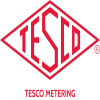Dive Brief:
- The Public Utilities Commission of Nevada opened a docket in September to consider how blockchain technologies could help in tracking "portfolio energy credits" (PECs) while considering how to replace the current system for renewable energy producers to earn and sell credits to electric utilities.
- The utility sector is eyeing several blockchain use cases, including helping to manage electric vehicle charging, lowering energy transaction costs and cutting the cost and time necessary to create and trade renewable energy certificates.
- The commission deemed the PEC tracking system was in need of an upgrade because "NV Energy has stopped maintaining the software," according to Commissioner Ann Pongracz. The PEC is intended to help the state meet a 25% renewable portfolio standard by 2025, which could double by 2030 if voters approve the Question 6 ballot measure in November.
Dive Insight:
Blockchain isn't making headlines quite like it was in 2017, but Nevada's decision to consider the distributed ledger technology shows the industry's work on the subject continues even as public fascination wanes.
It has only been 10 months since beverage maker Long Island Iced Tea Corp. changed its name to Long Blockchain — and saw its share price soar. But using blockchain to simplify the process of renewables tracking is an almost fundamental use case and has real applications in the utility sector.
The current system, called NVTREC, has several drawbacks and is no longer being maintained by NV Energy, the state's largest utility. An alternative system, the Western Renewable Energy Generation Information System, has a 1 MW threshold, making it too small and "therefore is not well suited to providing the value of PECs to the smaller generators," according to Pongracz.
Several providers were exploring the use of blockchain to provide "simpler, easier and more accessible" PEC tracking and trading systems that would accommodate smaller generators, Pongracz wrote in a statement supporting the decision to open the investigatory docket.
Pongracz said she wanted the commission to investigate whether a blockchain-based platform "could be a better way to track portfolio energy credits for the purpose of meeting the renewable portfolio standard."
Blockchain is a technology similar to a distributed ledger that allows for rapid, public validation of transactions in order to reduce data risks and speed the authentication process. It can eliminate the need for a centralized approach to market clearing, lowering transaction costs and setting the stage for a transactive energy environment.
Nevada's investigation is not the only sector-related blockchain news of late.
GE Power Digital announced it intends to work on a study with the German energy agency Deutsche Energie-Agentur (DENA) to investigate blockchain use cases in the utility sector. GE and others in the study have identified use cases "including asset and management and energy trading" and will conduct simulation studies around them. Results of the study are expected out in 2019.
Blockchain has the potential to be an "enabling technology for the future grid," GE Chief Digital Officer Steven Martin said in a statement, adding "the world's most powerful utility in 2025 may not exist today."















